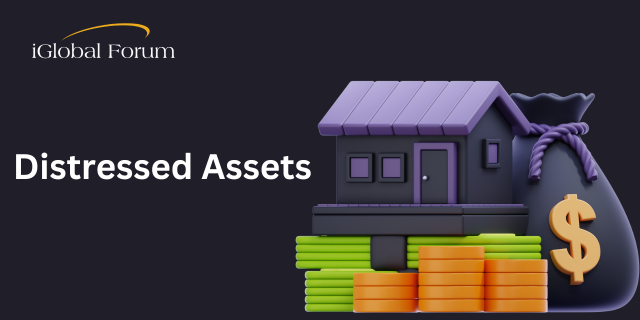At a time when interest rates have been raised to challenging heights and the office sector has been driven to a swift reckoning by hybrid working and work-from-home, distressed assets would seem to be an essential aspect of any investor’s short-term planning.
And indeed, major companies including Blackstone, Brookfield, Ares, and Starwood have introduced what Urban Land calls “mega-funds” targeting “opportunistic strategies.”
“Brookfield is actively raising capital for its fifth vintage global opportunistic real estate fund, Brookfield Strategic Real Estate Partners V, which reportedly has a target raise of $15 billion," the company wrote in a February 2024 article on its website. “Office REIT SL Green Realty also is throwing its hat in the ring with a recent announcement that it planned to start fundraising for a $1 billion New York City-focused opportunity debt fund.”
But while distressed investing is having its day, its popularity is shaking out differently than some might have imagined.
“We are always seeking distress situations with strong assets,” said Will Milam, Managing Director and Head of US Investments for Morgan Stanley Real Estate Investing, who will be one of the speakers on the Distressed Asset Investing panel at iGlobal Forum’s Global Leaders in Real Estate Summit, which takes place on October 15 in New York City. “We're always targeting and focusing on distressed situations and assets.”
But rather than focus on distressed properties per se, Milam notes that the firm’s interest is centered around non-linear distress.
“We’re not necessarily looking to buy super-distressed assets,” said Milam. “Diversified real estate owners have liquidity needs across their portfolio. Where we find ourselves being constructive is in helping provide liquidity in assets that maybe aren't distressed, but are driven by distress-like liquidity needs. We have been able to find great opportunities using that strategy.”
With distressed assets and opportunities carrying their fair share of risk, many balance the industry’s bullishness with a sense of caution.
Alan Todd, Managing Director of CMBS Strategy and Global Research at BofA Securities, makes it clear that his firm doesn’t necessarily view distress as the opportunity of the moment.
“The rise in interest rates affects everybody,” said Todd, who will also be speaking on the October 15 panel. “Because it's that broad-based, regulators really understand the problem, and have been fairly patient regarding how they're looking to banks with respect to how banks are marking loans. If you look at last year's Financial Stability Oversight Council report, it explicitly states that the best outcomes in many cases may be between borrowers and lenders working together.”
Todd also mentions that other than office, delinquency rates have dropped for every other sector.
“That's one of the misconceptions people have when they hear CRE. They think office, and then they apply that more broadly,” said Todd. “There is distress in the office sector, and pricing remains somewhat opaque. Transaction volume remains somewhat stunted, and it will take time.”
In a September 2023 paper on opportunities in distressed investing, J.P. Morgan Private Bank expressed optimism toward opportunities overall while also noting its avoidance of the office sector.
“We are generally steering clear of the troubled office sector, [but] we find interesting prospects in the residential, hospitality, and industrial sectors of the commercial real estate industry,” the paper read.
While high vacancies and price and value fluctuations make office investment a risky undertaking, Todd does feel that other asset classes offer opportunities worthy of consideration.
“If you look at certain regions like the Sunbelt, there's been a significant amount of supply with respect to multifamily,” said Todd. “And depending on the given market, I think rents are likely to stay depressed for a while until that supply gets absorbed. But in many cases, I view that as cyclical.”
Overall, despite the caution surrounding the office, many view distressed investing as an essential area of opportunity in today’s market.
In a March 2023 article, Coldwell Banker Commercial called out distress as a prime area to seek out.
“For new investors, distressed commercial properties are a great way to break into the commercial industry by acquiring quality properties with attractive profit margins,” the article reads, “since the borrower needs liquidity for other reasons or another deal.”
For a more in-depth discussion of the opportunities and risks involved in distressed investing, plan to attend iGlobal Forum’s Global Leaders in Real Estate Summit, which will be held on October 15 in New York City.
.png?width=600&height=150&name=logo%20(6).png)






